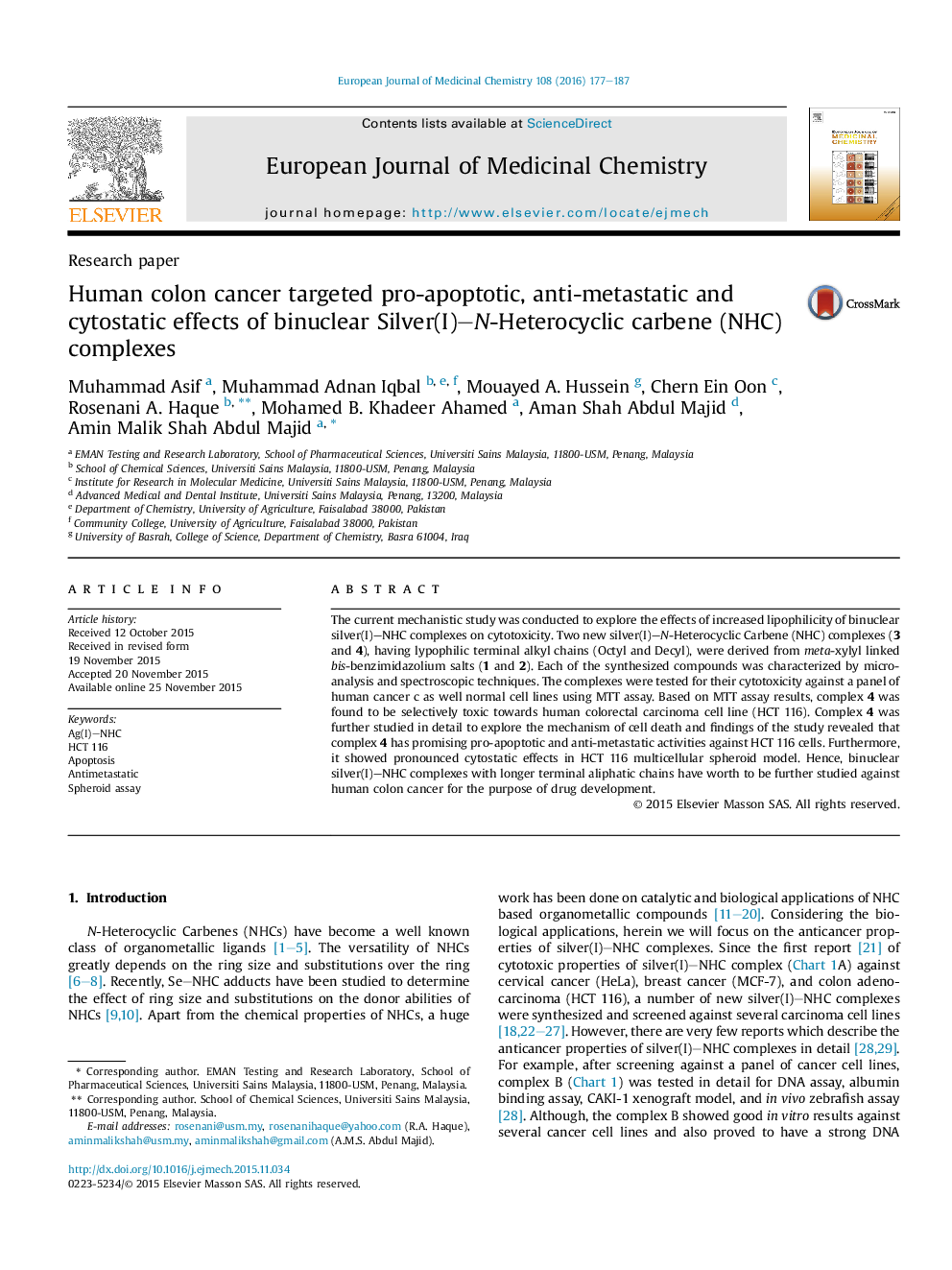| Article ID | Journal | Published Year | Pages | File Type |
|---|---|---|---|---|
| 1393845 | European Journal of Medicinal Chemistry | 2016 | 11 Pages |
•Synthesis of two new binuclear Ag(I)–N-Heterocyclic Carbene (NHC) Complexes.•Screening against a panel of cancer cell lines and normal cell lines.•A detailed study of the most active complex for cell death mechanism.•Highly lypophilic binuclear Ag(I)–NHC complexes may induce enhanced cell death.
The current mechanistic study was conducted to explore the effects of increased lipophilicity of binuclear silver(I)–NHC complexes on cytotoxicity. Two new silver(I)–N-Heterocyclic Carbene (NHC) complexes (3 and 4), having lypophilic terminal alkyl chains (Octyl and Decyl), were derived from meta-xylyl linked bis-benzimidazolium salts (1 and 2). Each of the synthesized compounds was characterized by microanalysis and spectroscopic techniques. The complexes were tested for their cytotoxicity against a panel of human cancer c as well normal cell lines using MTT assay. Based on MTT assay results, complex 4 was found to be selectively toxic towards human colorectal carcinoma cell line (HCT 116). Complex 4 was further studied in detail to explore the mechanism of cell death and findings of the study revealed that complex 4 has promising pro-apoptotic and anti-metastatic activities against HCT 116 cells. Furthermore, it showed pronounced cytostatic effects in HCT 116 multicellular spheroid model. Hence, binuclear silver(I)–NHC complexes with longer terminal aliphatic chains have worth to be further studied against human colon cancer for the purpose of drug development.
Graphical abstractFigure optionsDownload full-size imageDownload as PowerPoint slide
